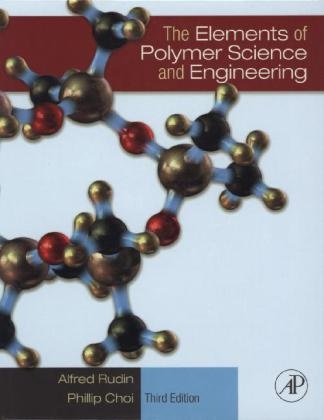Ulteriori informazioni
Informationen zum Autor Alfred Rudin is a member of the Professional Engineers of Ontario. Professor Rudin spent 14 years with a large Canadian chemical company in research, development, and production. He joined the University of Waterloo chemistry department where he is now a Distinguished Professor Emeritus. He is the author or co-author of 295 research papers and 25 patents. Dr. Rudin is also a fellow of the Chemical Institute of Canada, the Royal Society of Canada, and the Federation of Societies for Coatings Technology. Professor Phillip Choi is currently the Dean of Engineering at the University of Regina and a Professor Emeritus at the University of Alberta. His research focuses on polymer solution thermodynamics and polymer dynamics. He is the co-author of 3 book chapters and 145 research papers and 1 US patent. Professor Choi is a registered Professional Engineer in the provinces of Alberta and Saskatchewan and a federal court approved expert witness in polymer science and engineering. He is a Fellow of the Chemical Institute of Canada, Engineering Institute of Canada and Royal Society of Chemistry (UK). He received his B.A.Sc. in chemical engineering from the University of British Columbia and his M.A.Sc. and Ph.D., both in chemical engineering, from the University of Waterloo. Professor Choi has worked as a visiting/research scientist at Xerox Research Centre of Canada, Sternson Construction Limited, NOVA Chemicals Corporation, and Institute of Polymer Science at the University of Akron. Klappentext The Elements of Polymer Science and Engineering, 3e, is a textbook for one- or two-semester introductory courses in polymer science and engineering taught primarily to senior undergraduate and first-year graduate students in a variety of disciplines, but primarily chemical engineering and materials science. A key feature of the 3e is the inclusion of new concepts such as polymer nanocomposites and metallocene catalysts in existing chapters as well as new chapters covering selected contemporary topics such as behavior of natural polymers, polymer dynamics, and diffusion in polymers. The book is completely reorganized to be more aligned with how instructors currently teach the course. In addition, there are several enhancements to the book¿s pedagogy that make it more appealing to instructors and students, including the addition of new worked examples and new figures to better illustrate key concepts, and new of end-of-chapter exercises, many of them based on recently published research and relevant industrial data. Inhaltsverzeichnis Introductory Concepts and DefinitionsBasic Principles of Polymer Molecular WeightsPractical Aspects of Molecular Weight MeasurementsMechanical Properties of Polymer Solids and LiquidsPolymer MixturesDiffusion in PolymersStep-Growth PolymerizationsFree Radical PolymerizationCopolymerizationDispersion and Emulsion PolymerizationsIonic and Coordinated PolymerizationsPolymer Reaction EngineeringBiopolymers...
Sommario
Introductory Concepts and Definitions
Basic Principles of Polymer Molecular Weights
Practical Aspects of Molecular Weight Measurements
Mechanical Properties of Polymer Solids and Liquids
Polymer Mixtures
Diffusion in Polymers
Step-Growth Polymerizations
Free Radical Polymerization
Copolymerization
Dispersion and Emulsion Polymerizations
Ionic and Coordinated Polymerizations
Polymer Reaction Engineering
Biopolymers
Relazione
"The textbook has been a solid teaching text for introductory polymer science and engineering courses....It remains a very good textbook for many introductory concepts and is thought out and developed well for teaching purposes." --Eli Pearce, Polytechnicnic University, Brooklyn, NY, Polymer News, 1999

